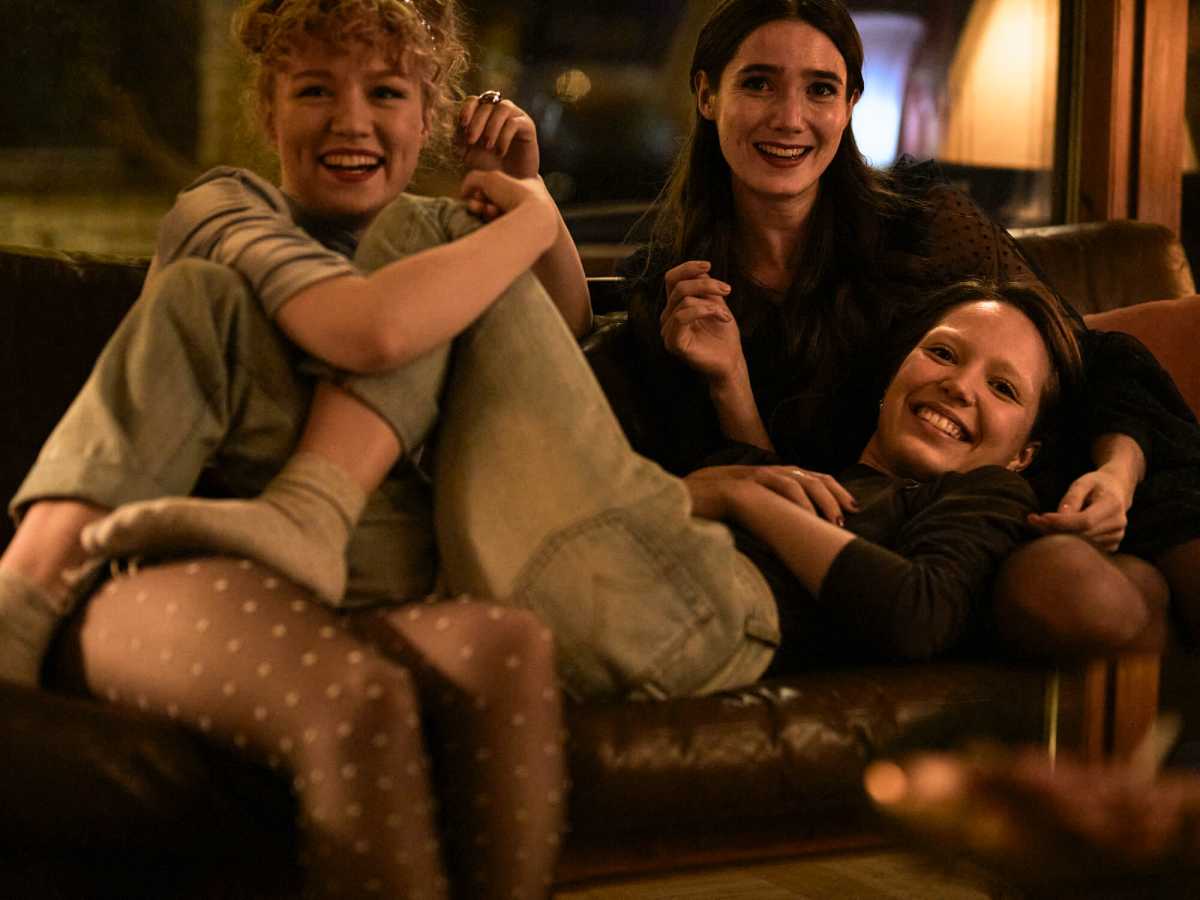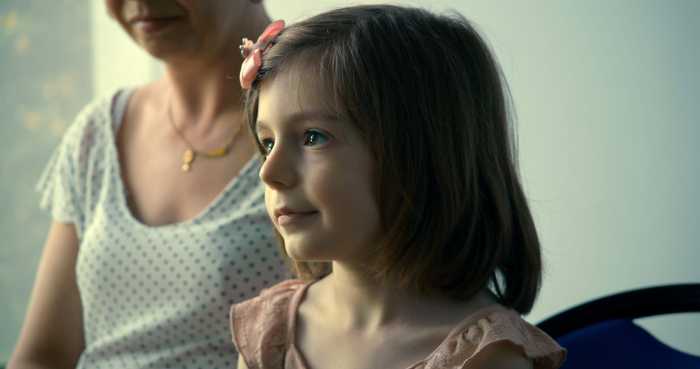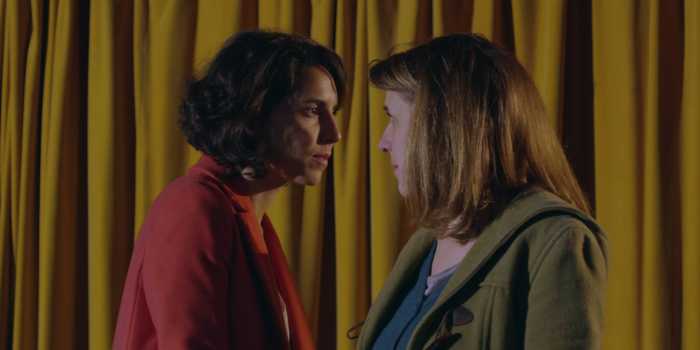“Girl Picture,” a charming romantic drama from Finland, features three teenagers grappling with love, sex, and heightened emotions. Mimmi (Aamu Milonoff), a lesbian, and her straight best friend, Rönkko (Eleonoora Kauhanen), work together at a smoothie bar. Mimmi is tough and acerbic, but when she meets Emma (Linnea Leino), a figure skater, she lets down her guard and gets romantic. Emma, whose life has been consumed by sports, falls hard in return, and discovers a sense of freedom (or at least rebels from skating) with Mimmi. Meanwhile, Rönkko has a series of awkward sexual encounters with various guys.
Director Alli Haapasalo’s film is refreshing for allowing its heroines to make mistakes because they are inexperienced and scared. The three leads are all engaging, and come across as real teenage girls, which is why the film is so gratifying.
Haapasalo spoke with Gay City News about her absorbing new film.
What were you like as a teen, or rather, how did you identify with these three young women?
I believe most people are fragile and strong at the same time; tough and very sensitive. I certainly was. I came across as the girl who was on top of everything and very active. I wanted to save the world. I was the loud girl in school. Often you see those girls as the ones whose feelings you don’t have to worry about, but they are very fragile and sensitive, and much more insecure that they’d like anyone to see. Mimmi is so completely competent and independent and knows everything about life, but all she wants is to be held by her mom. I identify with that a lot. I could never be as rigid and as goal oriented as Emma. But I also identify with Rönkko’s ability to throw herself into situations that can get very awkward. I was interested in getting experiences like her.
What can you say about creating the tone of the film? “Girl Picture” is cynical, romantic, playful and comic, but it also creates anxiety.
I’m glad to hear you think it has darker and more serious tones. The plot is so small that tone really is everything. You need to feel for the characters and get into their emotional experiences. Tone is the key, because the plot won’t carry you there. If you don’t hit the right notes emotionally, it feels like nothing happens. That’s not a negative thing — it’s beautiful thing when you can concentrate on character or emotion.
The way we started was figuring out the experience of teenage life. It’s such a crazy time, and you’re experiencing so many things for the first time. Everything is amplified and emotions are so big — everything is out of proportion. I like to work from abstract to the concrete. I worked on movement; the moments when you are still are a special effect. That lets exploding emotions and abrupt changes of mood guide us.
There is so much emphasis on how women are presented/depicted in cinema. What decisions did you make about this?
Women are not a distant animal, or mysterious. World cinema has exploitative depictions of women — they are oversexualized and victimized. But even when stories feature women and try to make women identifiable, many male directors make them mysterious, so it stays distant. I’m not mystified by women, or think they are dangerous, or only sexual, or something other than human beings. My gaze doesn’t mystify the characters, so I get closer. I think women directors in general do get closer.
Women feel with their heart and men feel with their head. Men say this is what it should look like, and women says this is what it feels like. Did that inform your representation?
We talked about what the representation usually is, and do we have that same bias? For a long time, we had a scene in the script with the girls escaping from a creepy guy. But why do we have to put young women in some level of danger? Films often say to young women that they are responsible for the bad things that happen to them — because of the way they dress, act, or the places they go to. We can make a choice to not put that on screen. There is not a single moment of danger in “Girl Picture.” That is one of hundreds of cases we worked through about representations of women.
Many of the sex scenes in the film are awkward, with the notable exception of the lesbian love scene. Can you talk about focusing on female pleasure, or in Rönkko’s case, the lack thereof?
I think the key is that they are all about the emotional aspects of the act. Nothing about them is about the physical sex. It’s about connection or lack thereof. Rönnko thinks it is her fault only, which makes her turn inward. She uses a different strategy with every guy, but she is completely alone and not connecting to anyone. The sex scenes are about the storytelling not the sex.
What are your thoughts about the relationship between Mimmi and Emma?
It was important to me and the two writers that the [lesbian] relationship would be a nonissue to everyone. In so many films, same-sex couples have to have approval, or someone has to have an issue with it, or they [the lovers] have an issue with it, and get over the obstacles. We wanted to liberate that. As a heterosexual woman, I have privilege that no one questions my sexuality ever, at all. We wanted that same privilege for these two women — no one asks, questions, or says something bad about it.
What observations do you have about these three protagonists who all self-sabotage?
That goes back to the question of what it is to be a teenager. It’s such a self-centered time. It’s terrible to watch teens sabotage themselves or their relationships. They don’t have perspective or know how to compromise yet. Or they might feel the need to please to get acceptance. As a teenager, you sabotage things because you don’t have perspective. You are so young. You feel every day is the day when it needs to be figured out and if you don’t figure it out, it’s the end of your life.
“Girl Picture” | Directed by Alli Haapasalo | Opening August 12 at the IFC Center | Distributed by Strand Releasing

































